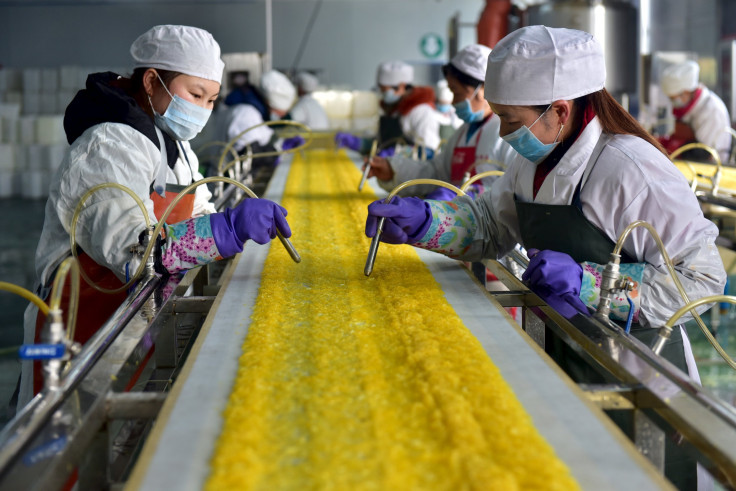China’s Manufacturing Sector Slowed More Than Expected In January, Official Data Shows

Activity in China’s manufacturing sector slowed more than expected in January, official data released Monday showed. The government-compiled Purchasing Managers’ Index (PMI) for the sector stood at 49.4 in the first month of 2016, down from 49.7 in the previous month and below a consensus estimate of 49.6.
Any PMI number below 50 indicates a contraction in the sector. January’s figures mark the weakest PMI result since 2012 and indicate a sixth straight month of contraction, adding to concerns over the state of China’s floundering economy, which, in 2015, grew at its slowest pace in 25 years.
The weakness in manufacturing has continued despite concerted efforts by the Chinese government over the past 15 months to lower borrowing costs for businesses, step up fiscal spending and reduce required bank reserves.
“The headline number is a disappointment to the market as output and new orders show no signs of a rebound,” William Wong, head of sales trading at Shenwan Hongyuan Group Co. in Hong Kong, told Bloomberg. “Trading this week will remain shallow ahead of the Chinese lunar new year holiday.”
On Monday, following the release of the official PMI data, China’s Shanghai Composite Index fell nearly 1.8 percent, while the smaller Shenzhen Composite Index dropped 1 percent.
Production at large-sized industries continued to expand, albeit at a slower pace, while the PMI for medium and smaller industries remained well below the 50-point mark separating expansion from contraction. Moreover, in January, the index for total new orders — a measure of domestic and foreign demand — dropped to 49.5, from December’s 50.2.
Over the past year, the Chinese economy has been weighed down by stubbornly soft demand, both at home and abroad. This has forced factories to slash selling prices, which has not only reduced their profits, but also added to the deflationary pressures the country is facing.
Meanwhile, activity in the services sector, which accounts for a major part of China's economic output and has long been the fastest-growing sector in the country, also slowed in January, dropping to 53.5 from December’s 54.4.
© Copyright IBTimes 2024. All rights reserved.












